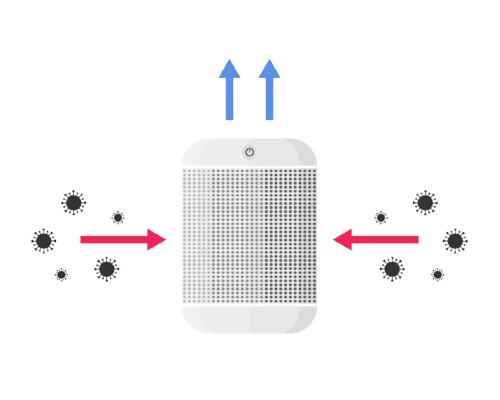There are currently 220,000 people aged over 65 living in UK care homes. This number is predicted to double by 2040, and as highlighted by the devastating effects of COVID-19 in care homes, reducing the spread of infections in care homes is a research priority.
Many infections are spread via droplets produced when people sneeze or cough. The droplets can be inhaled or picked up from the surfaces on which they land. Portable air filters seem an obvious solution to reduce the spread of infections since those that contain high efficiency particulate air (HEPA) filters can quickly remove germs from the air. For years, they have been built into hospital operating theatres and transplant wards to prevent infections. HEPA filters are now built into some portable units available for domestic use, and can be placed in care homes with relative ease.
The trial will divide 74 care homes into two groups at random. The 37 care homes in the control group will continue with usual care following their local infection prevention strategies, such as hand-washing. The 37 intervention care homes will continue with usual care and place air filters in communal areas and up to ten residents’ private bedrooms for one winter (September 2021 to April 2022). Care home staff will record the number of infections their residents experience during the winter and the results from the two groups will be compared.
Professor Alastair Hay, Chief Investigator from the University of Bristol’s Centre for Academic Primary Care, said: “Our research has shown portable air filters are capable of removing viruses and other germs from the air, but there have been no studies to investigate the benefits on human health, so AFRI-c is the first of its kind. The study also aims to understand if the purchase and use of air filters represents good value for money.
“We are particularly interested to hear from care homes and care home chains in England who might be interested in helping us. Please visit the AFRI-c study website to find out more about taking part.”
For further information about the trial, which started this autumn, please email: afric-study@bristol.ac.uk
